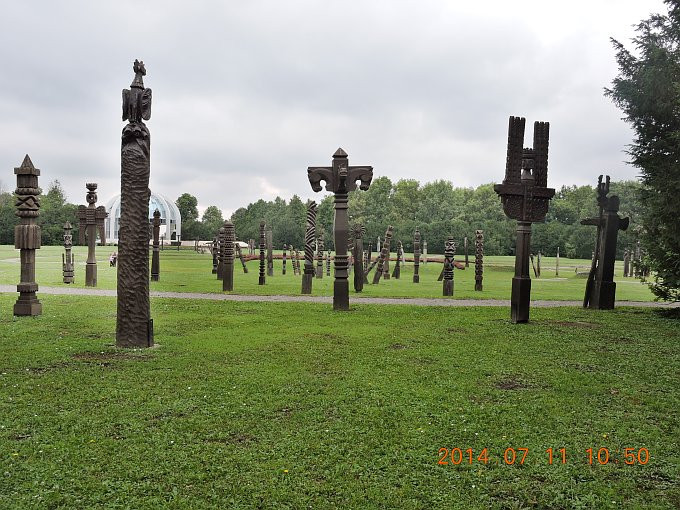Mohaç Anıtı - Macaristan
Kazılardan çıkan buluntuların yardımıyla yapılan bu anıt park Mohaç Savaşında ölenler için yapılmış.
4500 kişinin gömülü olduğu toplu mezar açılmamış.
Osmanlı askerleri de temsilen anıt parkta .
1990 yılında ölen Hıristiyanlar için de anıt meşe dikilmiş.
2009 yılında Dünya Miras listesine alınmış.
Kardeşleri birbirine düşürenlere lanet olsun.!
"According to Matt'eos Urhajec'i, in 1050-51, at the (people of the) Snakes, the UZ and the Pacinnakk were beaten by the fallow ones XARTESK the BLONDE,fallow = POLOVKCİ......"
KUMAN/KIPCHAK TURKS = POLOVKCI = XARTESK
Mohaç Muharebesi'ni gösteren bir Osmanlı minyatürü.
ve
Güzelim Atları
Y.Nemet (1969) has expounded the etymology of two geographical names of Gypchag origin met in Hungary. One of them is the oykonym "kartsag". "Kartsag" is the person name in the Khakasses, Kirghizes, Chuvashs and Gypchags. "Kartsag" means "steppe fox". The Jygatays say "karsag" and in the Tatar language it means "short", "shortish". According to Y.Nemet's opinion, maybe, the word "karsag" at the same time denotes pseudoname, personal name. Because, a group of animal names are used as personsl names by Turkic language peoples - Arslan, Gaplan, Bars, Janavar (Bechkem), Gurd, Buga, Dovshan, etc.
Kartsag is of Kuman origin. In 1239 the Kumans escaping from the Mongols settled in the Great plain, Hungary. One of these groups has settled between the rivers of Tissa and Danube (Y.Nemet, 1969, p.26). Y.Nemet using the literary materials writes that there are toponyms called Barsk_bey (between the Ural and Elba), Karsakpay (to south from Cheliabinsk, not far from the banks of the llek river), Karsag (the name of Nogay district).
Another Gypchag toponym observed in Hungary is the oykonym "Debretsen". According to Y.Nemet's information, the name of the villa Debrez is dated from 1235. The word "Debretsen" is used in different meanings among Turkic language peoples. In his opinion, "tebre" means "to act", "to catch", "to happen" and "tibren" denotes "to rock". He compares the word "Debretsen" with the words of "Dursun", "Tursun" and "Tokhtasyn" used in opposite meanings in Turkic language.
(page 157. Turkic Toponyms of Eurasia BUDAG BUDAGOV Translated By ZAHID MAHAMMAD oglu AHMADOV , “Elm” Publishing House, 1997-PDF)
*
































